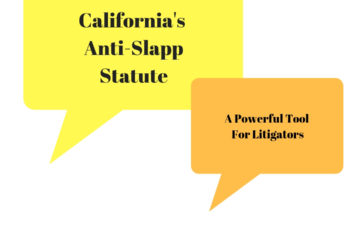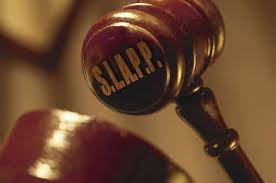Short for strategic lawsuits against public participation, SLAPPs have become an all-too-common tool for intimidating and silencing critics of businesses, often for environmental and local land development issues.
An “anti-SLAPP” law is meant to provide a remedy from SLAPP suits. Under most such statutes, the person sued makes a motion to strike the case because it involves speech on a matter of public concern. The plaintiff then has the burden of showing a probability that they will prevail in the suit — meaning they must make more than allegations of harm and actually show that they have evidence that can result in a verdict in their favor. If the defendant prevails on the motion, many of the statutes allow them to collect reasonable attorney’s fees from the plaintiff.

